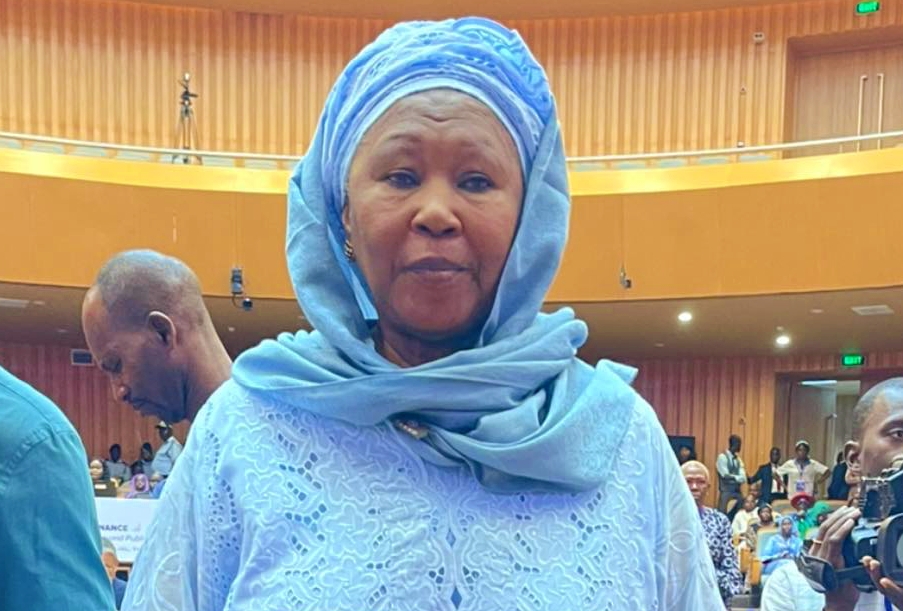Gambiaj.com – (BANJUL, The Gambia) – Fatoumatta Jallow-Tambajang, former Vice President of The Gambia and a key architect of the country’s 2016 political transition, has announced her candidacy for the 2026 presidential elections. She made the declaration during the Sahel Governance Forum in Bijilo, held at the Sir Dawda Kairaba Jawara International Conference Center—a regional event focused on restoring trust in governance and advancing inclusive leadership.
Using the platform for a political call to action, Tambajang urged more women across the Sahel to seek political office in a region still dominated by patriarchal norms and fragile democratic institutions.
Her announcement marks a significant moment in Gambian politics, as she seriously envisages to be the first female active contender in what is expected to be a hotly contested race.
Tambajang, who briefly served as Vice President and minister of Women’s Affairs under President Adama Barrow from 2017 to 2018, played a pivotal role in the formation of Coalition 2016—the alliance that ended Yahya Jammeh’s 22-year rule.
A veteran gender rights advocate, she also served in ministerial and advisory roles during the First Republic and worked with international organizations across the Sahel region.
Her entry into the race adds to an increasingly crowded field of high-profile candidates seeking to shape The Gambia’s post-transition future.
A Crowded Field and the Third-Term Debate
President Adama Barrow, first elected in 2016 and re-elected in 2021, remains eligible to run for a third term under the current constitution. Barrow has already announced his candidacy since January, despite concern among reform advocates who fear a potential reversal of transitional justice gains achieved since the end of Jammeh’s dictatorship.
The opposition United Democratic Party (UDP), led by veteran politician and human rights lawyer Ousainou Darboe, has also confirmed its participation in the race. Darboe—once an ally of Barrow and a central figure in Coalition 2016—has since become a staunch critic of the president.
He has described the upcoming vote as a “do-or-die” moment, emphasizing what he sees as an urgent need to safeguard democratic reforms.
Another prominent challenger is Essa Mbye Faal, former lead counsel of the Truth, Reconciliation and Reparations Commission (TRRC), who now heads the Sobeya Movement. Faal has positioned himself as a technocratic outsider, sharply criticizing the Barrow administration for corruption and institutional decay.
His campaign promises justice, economic renewal, and youth empowerment—although his TRRC record has come under scrutiny, especially regarding the lack of prosecutions.
No Guarantees in a Fragile Democracy
The 2026 vote will be the third presidential election since the ousting of Yahya Jammeh in 2017. While the transition initially sparked hopes for a new democratic era, progress has been halting.
Two proposed draft constitutions (in 2020 and 2024) were rejected by the National Assembly. Implementation of TRRC recommendations has been slow, and key transitional justice laws remain stalled. Civil society actors have warned that The Gambia is drifting away from its reform commitments.
Tambajang’s candidacy reopens debate about the unfinished business of the transition. However, critics may question her ties to the current political establishment and whether she can mount a campaign capable of mobilizing broad grassroots support. She also enters a race dominated by male candidates backed by entrenched party structures.
Whether her campaign can transcend symbolism and offer a viable political alternative remains to be seen. Still, her decision to contest underscores that the debate over the country’s future leadership—and the legacy of the 2016 transition—is far from over.










